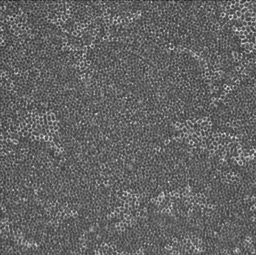
I am excited to share the letter “Microbiota Accessible Carbohydrates Suppress Clostridium difficile Infection in a Murine Model,” today in Nature Microbiology. C. difficile is a leading cause of infectious diarrhea in humans and it imposes a tremendous burden on the healthcare system. Current treatments for C. difficile infection include antibiotics and fecal microbiota transplant, which contribute to recurrent C. difficile infections and face major regulatory hurdles, respectively. Therefore, there is an ongoing need to develop new ways to cope with this pathogen. Here, I will reflect on the ideas that motivated our work, some key takeaways, and possible future directions. Let’s start at the beginning (of my postdoc).
I earned my PhD studying uropathogenic Escherichia coli with Rod Welch at the University of Wisconsin-Madison. As I was finishing my PhD work, I fell in love with the gut microbiome and its implications for our understanding of health and disease. I was especially taken by two foci of Justin Sonnenburg’s lab: (i) the effects of diet on the gut microbiome and (ii) the effects of the gut microbiome on bacterial pathogens. With the goal of uniting these two foci, I joined the Sonnenburg lab with my sights set on investigating diet and its impact on C. difficile infection.
Because we know that diet (in particular dietary fiber) is one of the most powerful drivers of the ecology of the gut microbiome, I hypothesized that manipulation of diet could “reset” the microbiome to be unsupportive of C. difficile, akin to fecal transplants. In this context, I thought that dietary manipulation of the microbiome to exclude C. difficile could represent an alternative, more palatable, strategy mitigate C. difficile infection. Justin was on board with testing this idea, so I set out to test it in the lab using a mouse model of C. difficile infection.
In our study, we show in mice that (i) low fiber (Western-like) diets potentiate C. difficile persistence and (ii) feeding dietary fiber to the “good” commensals in the gut is effective in suppressing C. difficile. These data suggest that the low fiber Western diet many of us consume may help to set the stage for C. difficile, a deadly bacterial pathogen.
In our work, we also provide data on host inflammation, microbiota-derived metabolites, and C. difficile growth and toxin expression. With these data, we built a model to test in future work. Specifically, in the mice fed low fiber diets, diet- and C. difficile-driven inflammation together help to engender an environment permissive to C. difficile persistence. When mice are fed high-fiber diets, the short chain fatty acids produced by their microbiota serve as a signal of microbiome fermentation to C. difficile. This signal of a competitive and inhospitable gut environment leads to an increase in toxin production by C. difficile.
As is often the case in science, many more questions are raised than addressed. Here's some that we're thinking about:
How does C. difficile benefit from inflammation during infection? Is toxin expression elevated after the diet switch to help C. difficile re-establish a disappearing inflammation-associated niche? Or is it merely a transmission strategy? What would happen to the infection in mice if we oscillated fiber rich and fiber deficient diets? Finally, because the overall goal is to reduce the impact of C. difficile infection on humans, what is the best approach for translating these findings? Do diets need to be “personalized” to see optimal effects in the context of a range of human microbiotas?
We’re certainly at the tip of the iceberg and I’m thrilled to be working with such a talented, diverse, and growing group of collaborators to find out what’s beneath. Let’s go!
The paper in Nature Microbiology is here: https://go.nature.com/2JjHBt8

Please sign in or register for FREE
If you are a registered user on Research Communities by Springer Nature, please sign in
Great work Andrew! As a food microbiologist currently wrapping up my Ph.D. and working on the prevalence of diarrheagenic E. coli in food and irrigation water sources in South Africa, your work is particularly interesting. I'm also seeking to build capacity in the role of the gut microbiome in intestinal disease so you work is surely a stepping stone. Thanks for the share!